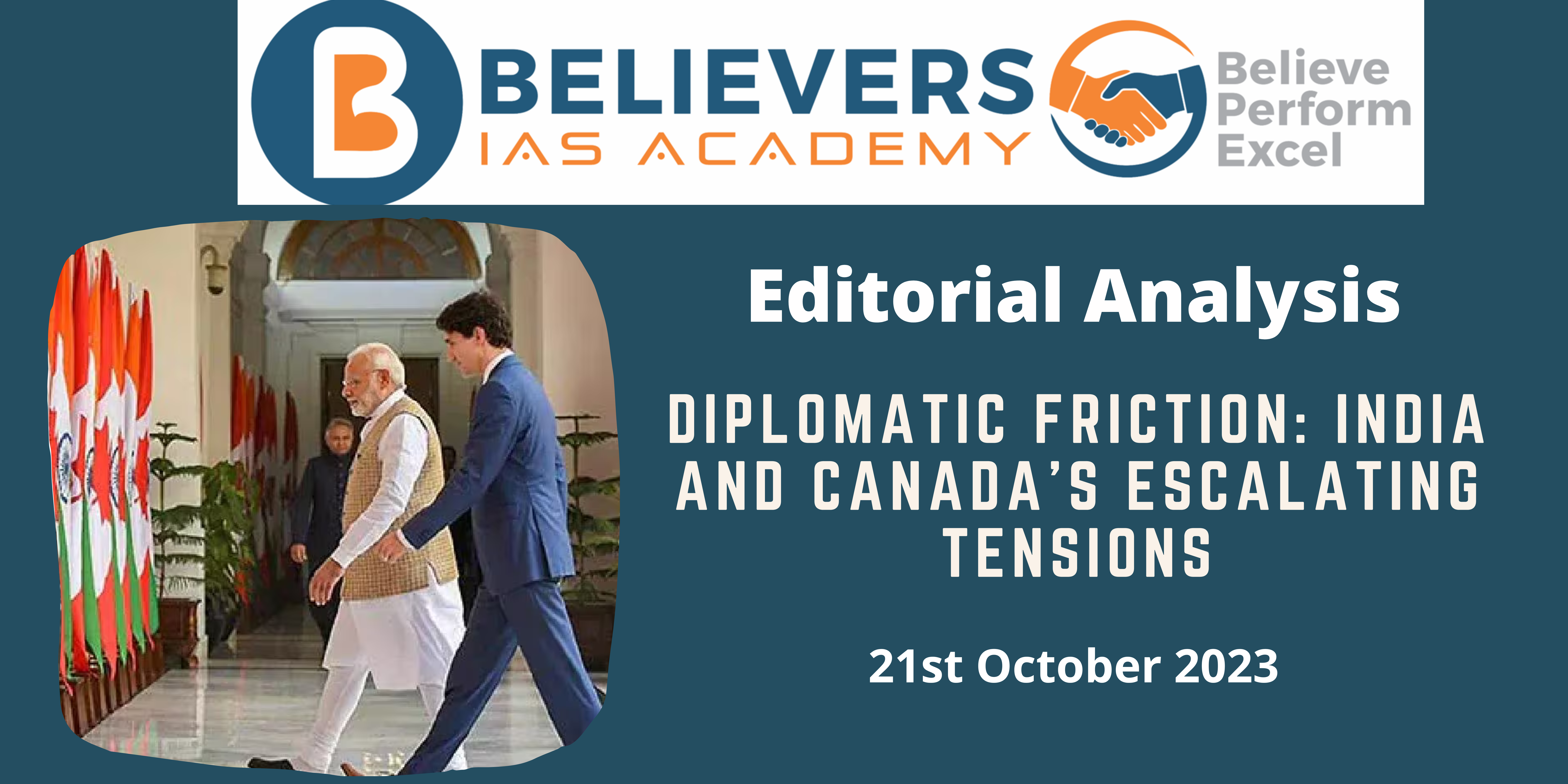Diplomatic Friction: India and Canada’s Escalating Tensions
Context:
The Ministry of External Affairs (MEA) recently reduced the number of Canadian diplomats in India from 62 to 21, following India’s demand to equalize the number of diplomats in each other’s missions. This move came amid allegations by the Trudeau government that India played a role in the killing of Canadian national and Khalistani activist Hardeep Singh Nijjar. While there were hopes of quiet diplomacy to mend relations, Canada continues to insist that India cooperate in its investigations against unnamed Indian officials. In response, India suspended visas for all Canadians and demanded the downsizing of Canadian diplomatic strength. Canada, in turn, flew out 41 of its diplomats and their families, leading to a diplomatic impasse.
Relevance:
GS-02 (International Relations)
Mains Question:
Analyze the recent diplomatic tensions between India and Canada and their implications for diplomatic relations, international law, and the welfare of ordinary citizens. Discuss potential avenues for resolving the conflict and the challenges involved. 250 words
Dimensions of the Article:
- Escalating Diplomatic Tensions
- Failed Diplomatic Efforts
- Impact on Citizens
- Diplomatic Way Forward
Escalating Diplomatic Tensions
- The article highlights the growing diplomatic tensions between India and Canada. The initial allegation by the Canadian government regarding India’s involvement in the killing of a Canadian national led to strained relations.
- While it was hoped that diplomacy would ease the situation, subsequent actions, including tit-for-tat expulsions of diplomats, have exacerbated the conflict. India’s demand to downsize the Canadian diplomatic mission further escalated tensions, with Canada’s Foreign Ministry protesting the violation of international law, specifically the Vienna Convention.
- The suspension of in-person visa services is another indicator of the deteriorating relations.
Failed Diplomatic Efforts
- The article points out that diplomatic efforts to resolve the conflict have thus far been unsuccessful. High-level meetings, including those between Prime Minister Modi and Prime Minister Trudeau, and discussions on the Nijjar case, did not yield results.
- Even meetings between the National Security Advisers and External Affairs Minister S. Jaishankar and Canadian Foreign Minister Mélanie Joly did not alter the trajectory of events. Mediation attempts by Canada’s “Five Eyes” Allies, although supportive of Canada’s claims, have not been effective in resolving the crisis.
Impact on Citizens
- The article underscores the human impact of the diplomatic standoff. Students, tourists, and businesspersons from both countries are likely to suffer due to the suspension of visa services and the reduction in diplomatic strength.
- The ordinary citizens are caught in the crossfire of this diplomatic dispute, facing disruptions in their plans and activities.
Diplomatic Way Forward
- The article suggests that diplomatic options appear exhausted at this point, and a period of reflection is needed to seek fresh counsel on how to break the deadlock.
- The challenge lies in finding a path towards reconciliation and addressing the core issues that have strained relations between the two nations.
Conclusion:
The deepening diplomatic tensions between India and Canada have real-life consequences for people from both countries. It is essential to find a diplomatic resolution that considers the interests of ordinary citizens and the principles of international law. As diplomatic efforts have thus far fallen short, a reevaluation of the approach and a willingness to engage in constructive dialogue are needed to navigate this challenging situation.




